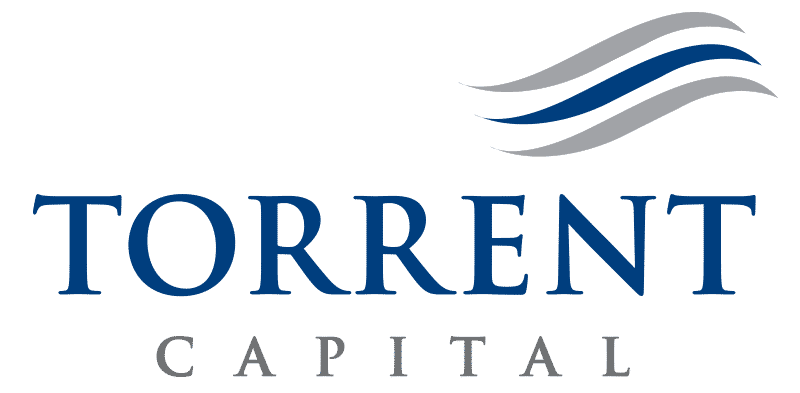This is No. 1 of a series of columns by Wade K. Dawe, CEO of Torrent Capital and co-founder/financier of public companies and Canada-incubated “seed” companies.
I’m an avid Nova Scotia boater. So when I was first introduced to scientists who were running Halifax’s IMV Inc., then called Immunovaccine Technologies, I already had seen and heard about their work: taming birth rates of a rapidly growing, fish-consuming harp seal population in the waters of northern Nova Scotia.
A couple years later, as a financier and early-stage investor, a partner of mine (Denis Ryan) and I arranged “seed” financings and the eventual 2009 listing of IMV on the TSX-V exchange in Canada. IMV’s lab here in a suburb of Halifax is now a cancer-battling “moonshot” developer of immunotherapies.
I see IMV and other companies we invest in and support from our offices at Purdy’s Wharf Tower (pictured here on Halifax’s waterfront) as “disruptors.” That’s a much-used, maybe overused term these days; you’ll see why.
I first invested in IMV in 2006 and it’s been anything but a smooth ride. That’s OK. The company survived through many difficulties commonly experienced by start-ups and emerging technology ventures. IMV has run through five CEOs since ‘06. It has come close to running out of cash on more than one occasion. At one point, Denis Ryan and I bridge-loaned the company $500,000 CAD to make payroll and keep the lights on.
Halifax then was not exactly known as a biotechnology hub of North America. In those early days, recruiting experienced managers and scientists for IMV was a challenge. Raising capital? Well … even more challenging.
You see, for decades, Canada got credit worldwide for financing natural resources: mineral and oil exploration companies operating in scores of countries. Much of Canada’s speculative investment capital flowed naturally to mining and exploration, where I got my start in the capital markets business during the mid-90s.
Thankfully, those “flows” are channeling to new streams. Today in Canada, in addition to capital flows to natural resources, we see a torrent of investment into those disruptors: new-economy, non-traditional sectors such as software, biotechnology, marine sciences, the blockchain, nano-technology and most recently, cannabis.
The IMV dynamic taught me plenty about the early life-cycle of a disruptor. Today, the company is well funded. A capable suite of executives and a laboratory of pioneering scientists are advancing clinical trials across a half-dozen cancer indications and another several infectious diseases.
We upgraded IMV from the TSX-V Stock Exchange to the main TSX in 2014, and in May 2018, we co-listed IMV on NASDAQ. To date, IMV has raised more than $100 million to fund its laboratory and a growing “pipeline” of clinical trials. (I left the board of IMV at that NASDAQ listing after having served as a director for 11 years.)
In our Torrent Capital offices at Purdy’s Wharf, we are in the business of “seeding” and investing in companies and start-ups with disruptor potential. We are talking science, enterprise software, electronic commerce, nano-tech, secure-ID, online rental marketplaces and even equestrian networks for valuable horses. (Much more to come on those “seeds.”)
The takeaway: seed capital from “angels” and other risk-prone investors is the fertilizer for start-ups. Without that early money from Canada’s capital markets, excellent and patented technologies would remain commercial orphans for years.
Biomedical/biotech with its life-saving, life-lengthening and life-improving aspects captures the imagination of all of us as human beings. We’re all looking for breakthroughs re: aging, cancer, stroke, viruses. I think that’s why IMV is a telling introduction to our approach at Torrent Capital.
In the Halifax suburb of Dartmouth, IMV is getting scientific, regulatory and investment “street cred.” Wielding its DPX-Survivac delivery of T-cell activating therapies, IMV is literally in the hunt for breakthrough status from the U.S. Food & Drug Administration.
Breakthrough status is when FDA regulators heed advice from an independent review board and award that designation to therapies for life-threatening diseases. The bar is high: the drug, or therapy, has to demonstrate with clinical evidence that it is superior to other candidates.
The FDA grants about a third of all requests for this accelerated review process of a clinical drug trial. In the case of IMV, breakthrough status would apply to the use of DPX-Survivac’s treatment of the horrible diseases of ovarian cancer and DLBCL, a type of lymphoma. Breakthrough status is not a guarantee of success; it is instead a vetting process for therapies that deserve a speedy approval process if those therapies continue their success in human trials.
If you scan IMV’s pipeline in the chart, you’ll see clinical trials for a number of cancer indications. All of the company’s human trials use an oil-based DPX injection method, originally called DepoVax, to generate a flow of T-cells that then target against a “bad” protein called Survivin.
In coming weeks this spring, IMV will be releasing fresh data from ongoing clinical trials including:
- A Phase 1b/2 DPX-Survivac monotherapy and combination trial in ovarian cancer (DECIDE), with data expected to be available and released at the American Society of Clinical Oncology (ASCO)’s conference May 31 to June 4 in Chicago;
- A Phase 2 study in combination with Merck’s Keytruda, a so-called anti-PD-1 therapy whose generic name is pembrolizumad, in Relapsed/Refractory DLBCL (SPIREL). Human data are likely to be released in mid-June;
- A “basket” trial with DPX-Survivac and Merck’s “pembro” in patients suffering from tumors in bladder, liver, ovarian, and non-small cell lung (NSCLC) More results from that trial will be published as an ASCO abstract in mid-May, before the ASCO cancer conference, which is one of the largest oncology gatherings worldwide.
Some investors are wary. In March, IMV completed a financing of $26.7 million CAD that was led by U.S. investment bank Wells Fargo Securities. This was the largest equity raise in IMV’s history.
The financing at a “discount” to IMV’s current stock price at the time whittled the share price in subsequent weeks. I have used to opportunity to acquire a position for Torrent Capital. “Insider” board members and executives also have been adding to their IMV stakes this spring.
Comparable cancer fighters such as Kura Oncology, Zymeworks, Idera Pharmaceuticals and a score of others in Canada and the U.S. sell their equity at valuations that are materially higher than IMV’s.
If upcoming clinical trial data continue to show more than 50 percent of IMV patients seeing tumor regression, and-or demonstrate continued lengthy durability beyond a year, I believe IMV shares will receive an upward re-rating.
These cancers are painful, swift killers of women and men. To date, IMV’s clinical results are showing extended “durability” in patients’ bodies. Admittedly, sample sizes (numbers of patients dosed) have been modest. I expect new data from the ongoing trials to grow the critical mass of patients getting DPX-Survivac as a “mono-therapy” or in combination with “pembro” or other molecular compounds.
Allow me if you would to summarize: IMV’s cancer and infectious diseases technology “adjuvant platform” illustrates how an unorthodox approach, in this case an oil-based vaccine injected into a pesky and hearty seal, can launch businesses that tackle global diseases.
Canada’s quick-to-the mark seed capital, starting with “angel” investors, is firing up successes in a number of new economy industries such as marijuana, bio-pharma, software, blockchain and e-commerce.
I look to tell you in coming reports about our Torrent Capital holdings, some public and a couple private, that we either had a hand in launching or that we support . It’s a selective fund. (Please see our management discussions and our SEDAR filings.)
Quarter to quarter, you will see volatility in our performance. Scott Gardner, Chief Investment Officer, and I believe our focused portfolio and seed-capital stakes will position us well.
I hope you will track our investments and our ideas. Some are on the radar: IMV, Kneat Inc., DHX Media and Martello Technologies. Others are not.
Not all will succeed. Some will take longer than envisioned. Others will take twisting paths to reach their goal, as in the case with IMV.
Scott and I will be sharing more thoughts on early-stage companies that have the talent, the capital and the audience to disrupt and maybe erupt.
Bye for now,
Wade


